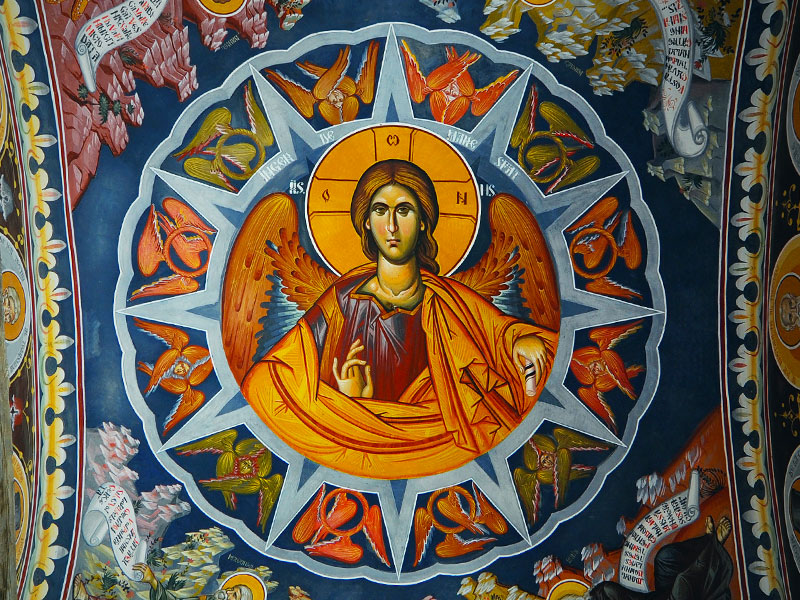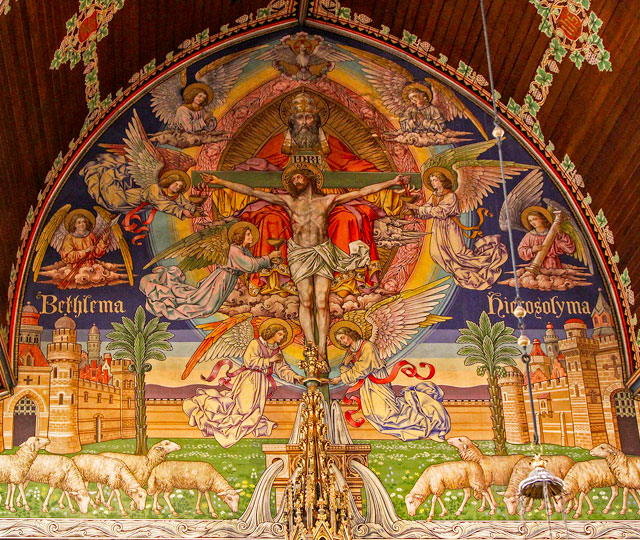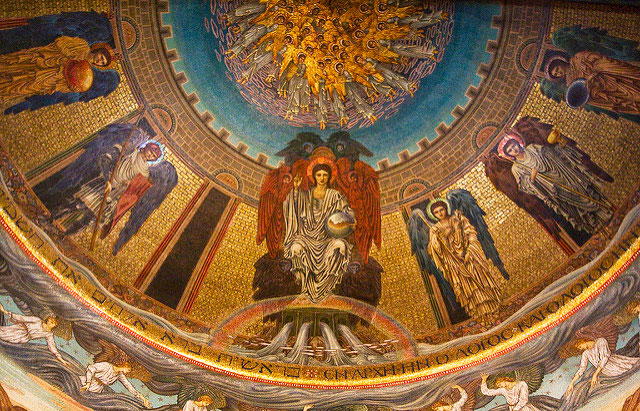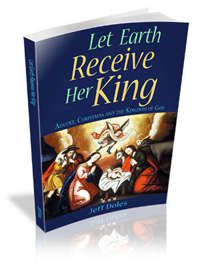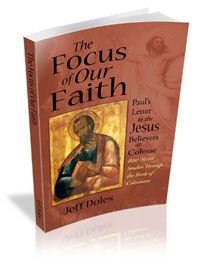Let this mind be in you which was also in Christ Jesus, who, being in the form of God, did not consider it robbery to be equal with God, but made Himself of no reputation, taking the form of a bondservant, and coming in the likeness of men. And being found in appearance as a man, He humbled Himself and became obedient to the point of death, even the death of the cross. (Philippians 2:5-8)
Be “like-minded,” Paul said, and “of one mind.” But it was a particular mind he had in view — the same mindedness, the same attitude that the Messiah, Jesus, showed when He became a man and went to the cross on our behalf.
Jesus is God. He is the Word about whom John the Gospel writer said, “In the beginning was the Word, and the Word was with God, and the Word was God” (John 1:1). That is how it always was with Him, and how it always will be. Even so, there is something important that happened that changed the world forever. As John went on to say, “And the Word became flesh and dwelt among us” (John 1:14).
In nature, essence and form, Jesus was, and is, God. But He “did not consider it robbery.” This translation does not make very clear what Paul means. Here are a few other versions that give a better understanding:
- “did not count equality with God a thing to be grasped” (English Standard Version)
- “did not consider equality with God something to be robbed {or used to advantage}” (Context Group Version)
- “did not cling to his prerogatives as God’s equal” (J. B. Phillips’ New Testament in Modern English)
- “did not think that being equal with God was something to be used for his own benefit” (The Expanded Bible)
- “did not after weighing the facts, consider it a treasure to be clutched and retained at all hazards” (Wuest, The New Testament: An Expanded Translation)
So Jesus “made Himself of no reputation, taking the form of a bondservant.” The Greek words literally mean that He “emptied Himself.” This does not mean that He in any way ceased to be God in essence or in attribute. It means that He did not cling to His divine prerogatives, but as Phillips says, “stripped himself of all privilege by consenting to be a slave by nature.” Or as the
Lexham English Bible puts it, He “emptied himself
by taking the form of a slave,
by becoming in the likeness of people.” Being God did not mean He could not be a servant, and being a servant did not take away one bit of His divinity.
He took on the form of a
doulos, a bondservant, a slave. The Greek word
doulos views a servant in relationship to his master. Though Jesus is equal to God in His essence, He took on the form of a
doulos, to serve the Father and be obedient to Him. Jesus said, “I do not seek My own will but the will of the Father who sent Me” (John 5:30). The form He took did not make one bit of difference to the essence of His being. He was free to serve and it did not rob Him of anything.
Jesus not only took on the form of a servant, He came in the “likeness” of men. In the beginning, when God created the heavens and the earth, God said, “Let Us make man in Our image, according to Our
likeness” (Genesis 1:26). In the LXX (the Septuagint, an ancient Greek translation of the Old Testament), the word for “likeness” used there is essentially the same one Paul uses here in Philippians.
There is a beautiful symmetry at work: Man was created according to the likeness of God, and God, in the person of the Son, came in the likeness of men. The Word, who was with God in the beginning, and indeed is God, became flesh and dwelt among us. He was “found in appearance as a man,” or as Weymouth puts it, “being recognized as truly human” (
New Testament in Modern Speech).
Jesus “humbled” Himself. In verse 3, Paul said, “Let nothing be done through selfish ambition or conceit.” The Greek word for “conceit” is
kenodoxia, literally, “empty glorying” (which is why some versions translate it as “vainglory”). Now compare that with Jesus, who “emptied” Himself (the Greek word is
kenosis) and “humbled” Himself. There is no selfish ambition there, no seeking of reputation, no “empty glorying.” While some of the believers at Philippi were apparently operating in empty pride (that is, pride without cause), there was no such vanity in the Lord Jesus.
Paradoxically, by not holding onto the prerogatives of God at all costs, Jesus was actually manifesting the nature of God. Consider how Wuest translates this passage:
But himself He emptied, himself He made void, having taken the outward expression of a bondslave, which expression comes from and is truly representative of His nature [as deity], entering into a new state of existence, that of mankind. (brackets are Wuest’s)
Becoming a bondservant is not foreign to the nature of God but is representative of His true nature as deity! God is love, John tells us (1 John 4:16), and it is the nature of love to give and to serve. God so loved the world that He gave His Son; the Son so loved the world that He gave Himself. On the night of the Last Supper, Jesus revealed the secret of divine greatness to His disciples:
You know that those who are considered rulers over the Gentiles lord it over them, and their great ones exercise authority over them. Yet it shall not be so among you; but whoever desires to become great among you shall be your servant. And whoever of you desires to be first shall be slave of all. For even the Son of Man did not come to be served, but to serve, and to give His life a ransom for many. (Mark 10:42-45)
This is not about becoming a servant so that we may one day be promoted to greatness. No, becoming a servant
is the promotion and serving one another
is greatness. It is a perfect reflection of the divine nature.
Having taken the form of a bondservant (in His divinity) and humbled Himself (in His humanity) Jesus became obedient to the Father’s will, even to the point of death. Not just any death, but the most terrifying, most humiliating kind of death — death on a Roman cross. Divine greatness, not to mention divine grace, knows no bounds.
Focus Questions
- Does it surprise you that servanthood is greatness?
- Does it surprise you that servanthood is truly representative of the divine nature?
- How does this help you take on the attitude of being a servant for others?

.



